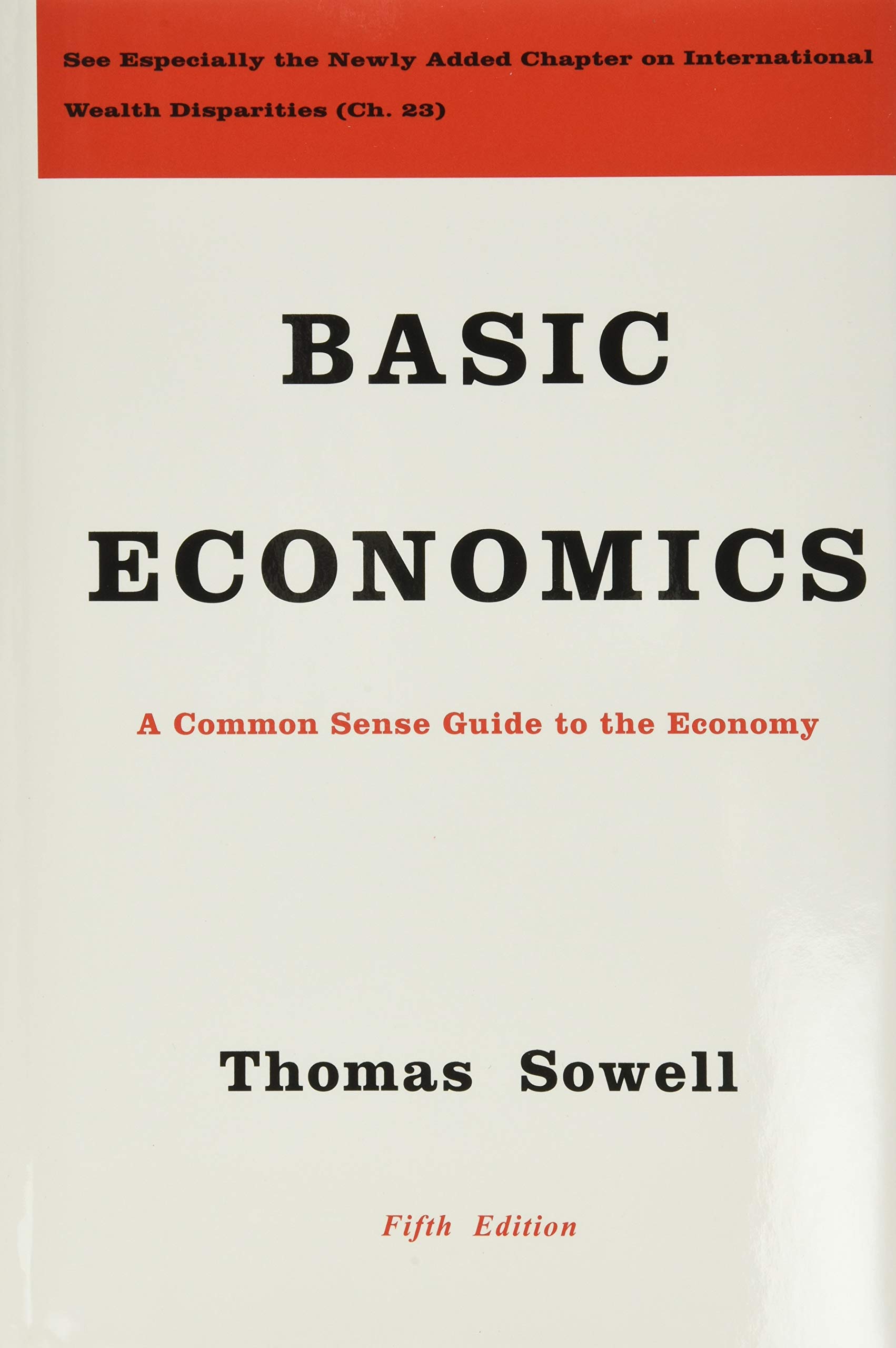
I was required to take one college-level economics class in order to obtain my engineering degree. I am happy with the education I received and the school I received it from, but I believe I learned much more from reading this book than I did from a one semester class. It is amazing how well-written this book is. Einstein is quoted as saying that if you cannot explain something to a third-grader, then you probably do not have a full grasp of the topic. While I do not believe this quote to be 100% accurate as most third graders have a limited view of the world, the gist of it is true. If you can explain a topic in laymen’s terms, you have a good grasp of the topic. This book is almost completely absent of equations. Everything is explained in the simplest terms possible using hundreds of real-life examples to back up ideas and concepts. Despite being a 700+ page economics book, it was a pretty easy and enjoyable read.
It turns out that economics is basically a predictive mechanism for human behavior when it involves the distribution of scarce resources that have alternative uses. The health of a given economy is proportionate to the efficiency at which goods and services are provided.
This book delves into the failings of the former Soviet Union’s communist economy. The Soviet government had ministers of industry that decided how much of anything was to be produced. This is contrary to a free market where the decision to produce something is guided by the market’s need for it. In a free market, if a producer is producing things that are not selling, that producer will soon be out of business unless the producer moves its resources into creating things that will sell at a profit. The Soviet government would try to predict how many cars, washing machines, or crops to produce and would often be wrong. Unused machinery or crops would just rot in warehouses. The capital and effort used to create them was wasted. Alternative products that the market desired should have been produced rather than what was produced and then never used. A free-market is, for the most part, self-adjusting, and self-correcting. Goods and services are produced in the quantities that are needed because the companies that produce them will fail if they do not. Communism removes this mechanism. In a communist government, competition is absent, and the government industries just become less efficient rather than fail. These inefficiencies are passed on to the citizens in the the form of long waits for goods, poor selection, and an overall lower standard of living.
A theme that runs through this book is the notion that politicians often do things that sound good to gain votes, but are often detrimental to society. One example is New York’s rent control policies. These sound like a great idea to citizens desiring lower housing costs, but the effects on the general population is, for the most part, negative. If a family lives in a large three bedroom apartment it is nice to not burden the family with high rent costs. But what happens when the children are grown and move out? Do the empty-nesters that no longer need three bedrooms leave for a smaller place? The answer is probably no. If they were to leave, they would lose their rent control on that unit. They likely would have to pay more to leave and move into a smaller place. It is unlikely anyone would do this. As a result, the supply of larger apartments for families is reduced. Housing is no longer used efficiently. Landlords of these buildings are often forced to host tenants whose rents do not provide enough resources to properly maintain buildings. The result is often poorly maintained buildings, and in many cases, buildings that are abandoned by landlords. Also, new apartments subject to rent control are unlikely to be built. New apartment buildings in New York are usually luxury apartments that are not subject to rent control. This eventually creates an even greater lack of affordable housing. What was a great political platform to run on, affordable apartments, in actuality results in shortages of affordable housing.
In a similar vein, minimum wage laws are typically popular with voters, but are often detrimental to the economy. If a company has to pay all workers $15 an hour and there are some workers that only output $10 an hour of value, then that company will likely not hire those employees. The unemployment rate increases when the minimum wage is increased. Young, unskilled people who might gain skills working a $10 an hour job will simply go unemployed. Similar occurrences are created when a government imposes lavish benefit requirements for workers as is often the case in European countries. If the cost of adding a worker is greater than the benefit, a company will not hire that worker. Over time, the young, unskilled workers are denied learning skills and entering the work force because it is not cost-effective for companies to hire them. Minimum wage laws are sold by politicians as help for the poor, but the poor are the most likely to be put out of a job by these policies. To quote the author in his Feb. 3, 2021 tweet – “The minimum wage law is very cleverly misnamed. The real minimum wage is zero—and that is what many inexperienced and low-skilled people receive as a result of legislation that makes it illegal to pay them what they are currently worth to an employer.”
The author, Thomas Sowell is an African American born in Gastonia, North Carolina in 1930 under the most humble of circumstances. His mother was a housemaid and his father died before he was born. Despite his early hardships, after being drafted into the Marine Corps for the Korean war, Sowell managed to get his BA from Harvard University, his MA from Columbia University, and his PhD from the University of Chicago. He was the first member of his family to have studied beyond the sixth grade. I imagine his biography, A Personal Odyssey is pretty interesting and I will likely read it in the near future.

